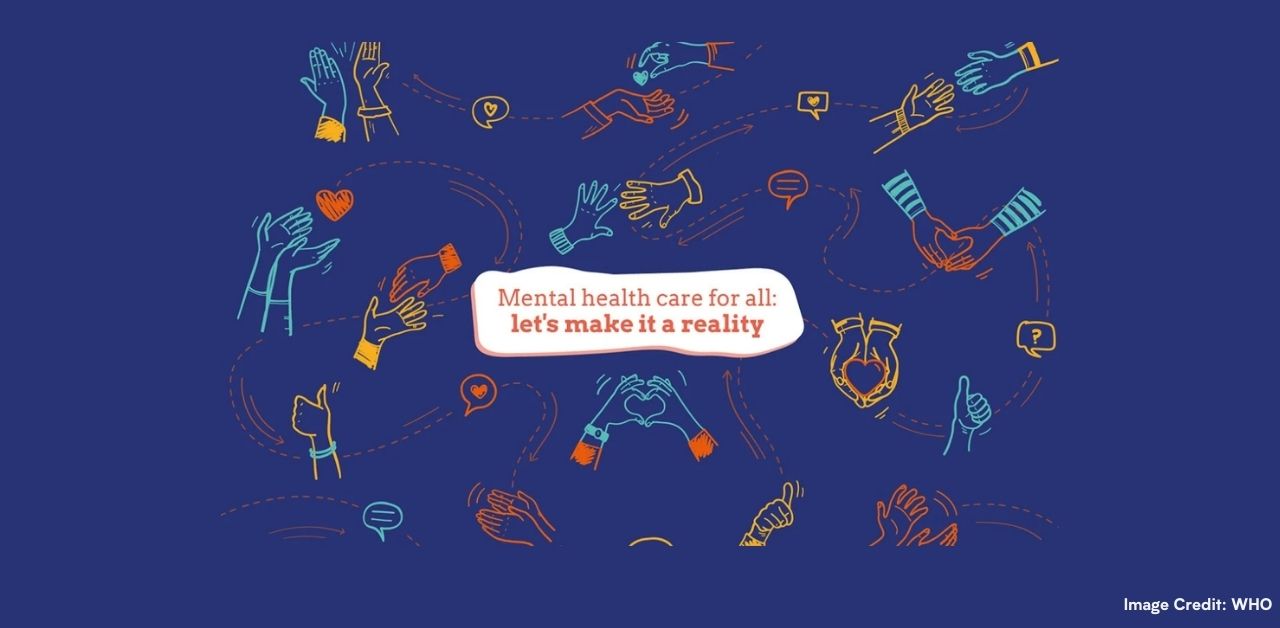World Mental Health Day provides us with the opportunity to raise awareness about global mental health concerns and to urge for renewed action. The theme, “Mental Health in an Unequal World” highlights the global differences and challenges faced in ensuring mental health care for all.
The full impact of COVID-19 is, as yet unclear, however it is clear the pandemic has laid bare and exacerbated the inequalities in mental health access around the world. There are many areas where more work needs to be done as we strive for mental health care for all and to address the global challenges in mental health care and treatment. Global momentum and awareness of these issues is high and we have the opportunity to act and make a difference.
The World Health Organisation's Comprehensive Mental Health Action Plan provides global direction that sets out clear actions for Member States, the WHO Secretariat and international, regional and national partners to promote mental health and well-being for all, to prevent mental health conditions for those at-risk and to achieve universal coverage for mental health services. The recently updated action plan hold clear prorities around suicide prevention including decriminalising suicide, the development of national suicide prevention strategies and the importance of appropriate and sensitive media portrayals of suicide.
Access to mental health care is also central to the World Health Organisation’s (WHO) campaign; “Mental health care for all: let’s make it a reality” and the WHO also aim to highlight support for those suffering both from depression and suicidal ideation. Depression is one of the most common mental health conditions and an individual suffering with depression is twenty times more likely to die by suicide than someone without the disorder.
Suicide affects individuals, families, workplaces and communities the world over. One in every 100 deaths worldwide is the result of suicide and each and every suicide is devastating and has a profound impact on those around them. It can affect every one of us and remains a universal challenge with millions impacted. The reduction of suicide mortality is of global importance and a vital public health consideration.
The decriminalisation of suicide and suicide prevention in countries where suicide is still considered a criminal act, is one such area that is a fundamental stepping stone in ensuring individuals have access to appropriate mental health services. Suicide remains illegal in at least 20 countries worldwide and attempted suicide is punishable under Sharia Law in a further 20 countries. The criminalisation of attempted suicide undermines national and international suicide prevention efforts and impedes access among vulnerable individuals and groups to suicide prevention and mental health services. ⠀
“We should all strive for a world where people are not judged by their mental health. The decriminalisation of attempted suicide is the first step in ensuring the rights of vulnerable individuals are upheld”, said Rory O’Connor, IASP President.
“In urging countries to reform their laws and end the criminalisation of suicide, we can make progress towards reducing stigma and encouraging understanding and work towards positively influencing mental health policy; a vital step in ensuring those engaging in suicidal behaviour obtain the help they need and want. “
The recent United for Global Mental Health report, Decriminalising Suicide: Saving Lives, Reducing Stigma, examines the civil laws which criminalise suicide and the implications they have around the world. The report aims to help those campaigning for decriminalisation of suicide make progress and ensure that everyone, everywhere, who needs support for their mental health before, during and after a suicidal crisis can access it, free of stigma and discrimination. IASP supports these advocacy efforts through United’s Global Mental Health Action Network’s Working Group on Decriminalisation of Suicide, look out for a webinar later this month.
Inequalities are also apparent in the availability and quality of data that aids responses to suicide prevention and wider mental health care. This is particularly the case for asylum seekers and refuges where the data is often missing or incomplete. Most of this evidence is collected in high-income countries, with very little data available from low- and middle-income countries, which host 85% of the global refugee population.
IASP hosted a webinar in partnership with Intervention, the Journal of Mental Health and Psychosocial Support In Conflict Affected Settings, on Thursday 7th September focusing on the Journal's latest special edition looking at suicide prevention and response and highlighting different aspects of suicide prevention and response among refugee and other conflict-affected populations in a variety of settings. A recording of the webinar is available here.
The International Association for Suicide Prevention (IASP) continues to urge for action over World Mental Health Day and to highlight where more work can be done. A renewed commitment for the promotion, provision and protection of mental health care is needed now more than ever to ensure that every individual in need of help can access adequate support. Communities and individuals globally must be empowered to attain the highest standard of health, which can only be achieved when their mental health and well-being is ensured, and their rights respected.




